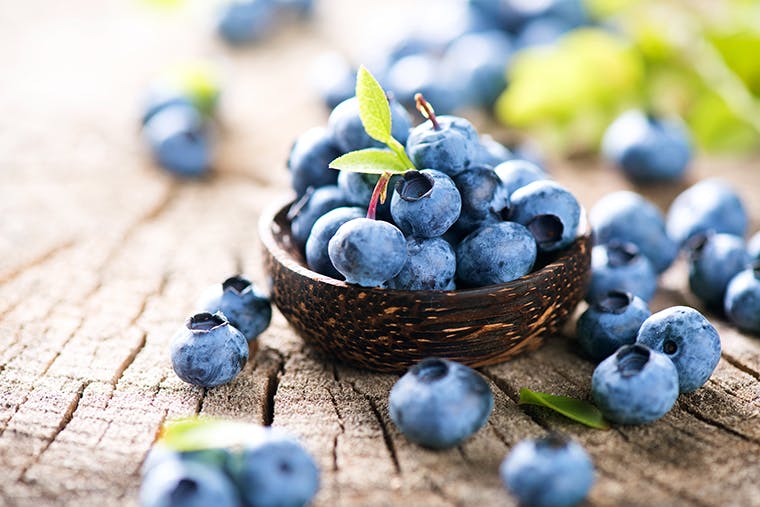How to Support Your Child’s Development
Supporting your child’s development goes beyond nutrition, though that is a big part of it. Things like playtime, developing relationships with family and friends and eating nutritious foods all help contribute to children’s development the same way they contribute to adults’ health and well-being. From pregnancy through birth, to infancy and early childhood, there are a number of things you can do to support your child’s development. Read on to learn some of the factors that go into children’s development and how you can support them.
Vitamins and minerals for children
From infancy to adulthood, getting a wide variety of vitamins and minerals in your diet is important.1 A healthy diet is important for child development because vitamins A, C, D, E, K, and multiple B vitamins all support different mechanisms in the body, as do minerals like calcium and iron.1 Vitamins and minerals are in almost everything we eat, and different foods contain different vitamins and minerals in different quantities.1
Vitamin A is important for vision—it helps you see at night and it helps you see in color.1 You can get vitamin A from milk, liver, orange fruits and veggies like carrots or cantaloupe, and dark leafy greens.1
Vitamin C is something you are probably familiar with, as it is present in citrus fruits and juices.1 It strengthens connective tissues—including your skin.5 It also helps your body absorb iron.1
Vitamin D provides a variety of important benefits for children, including helping kids develop strong bones.2 Even adults benefit from vitamin D for strong bones. It is present in dairy fortified with vitamin D, liver, fish, egg yolks, and more.1 The sun is the best source of Vitamin D.
Vitamin E is important for cellular health, including red blood cells.1 You can find vitamin E in whole grains, leafy greens, egg yolks, and more.1
Vitamin K supports blood clotting mechanisms, so you don’t continue to bleed if you get a cut or scrape.1 Find vitamin K in leafy greens, dairy, broccoli, and vegetable oils like olive oil.1
Iron is important for children, too. Not only does it help red blood cells carry oxygen through the body, it also supports children’s learning abilities.3 Consider feeding your child red meat, seafood, poultry, and eggs to support their iron needs.3
Calcium supports your child’s development of bones and teeth, similar to vitamin D.6 You can find calcium in dairy, sardines, and some veggies like broccoli.5
Why are B vitamins important?
There are many different B vitamins, including B1, B2, B6, B12, niacin, folic acid, biotin, and pantothenic acid.1 B vitamins are important for children as they support the metabolism, or energy expenditure—they help your body convert food into energy to do daily activities and basic bodily functions.1 They also help make red blood cells.1
Vitamin B12 for kids
Vitamin B12 is particularly important for children as it supports brain development and creating red blood cells.4
Foods rich in B vitamins
B vitamins are present in a variety of foods:1,5
- Meat
- Poultry
- Fish
- Dairy milk
- Soy products like tofu and soy milk
- Eggs
- Fortified breads and cereals
Do I need to give my child supplements?
Because so many of these important vitamins and minerals are not naturally produced by the body, it is important to provide your child a well-rounded diet so they can consume all the nutrients they need.6 Through diet alone, most children will get all the necessary nutrients, so long as they are eating a variety of fruits, veggies, grains, and protein sources.6
Some children, however, do need a supplement with vitamins and minerals, especially if they are picky eaters or have specific diets like vegetarian, vegan, or dairy-free.6 Speak with your child’s healthcare provider to determine if you should give your child a vitamin. You can get an over-the-counter supplement that is easy to chew.
Supporting your child’s development through play, family time and more
There is, of course, more to children’s development than just diet and nutrients. It is important to consider kids’ emotional, social, and educational needs, which include developing friendships, spending time with family, having a safe, loving home, exercising, and sleeping well.6 Some key things to support your child’s development include:6,7
- Speaking with your child. Even if they are babies and can’t talk back, children are listening and learning about the world around them, so engage with them even if they’re only able to make noises in response.
- Creating routines. Routines help make things predictable for children, which can help them feel safe and secure. Routines can also reduce tantrums, as they will know what to expect in the future. These can be routines for bedtime, waking up, dinnertime, playtime, or anything else you do with regularity.
- Teaching them how to handle feelings. Kids are still learning how to regulate emotions and how to manage their feelings. When you remain calm during stressful events, it can help your child see how to handle their own stressors.
- Playing with your child. Young children learn through play, and playing pretend helps their brains develop problem-solving skills and language abilities. When you play with your child, you develop important bonds to foster your relationship. You can also teach your child how to share during this time.
These are just some of the ways you can support your child’s development. Between balanced nutrition and supportive emotional and mental care, you can set your child up for success for the rest of their life.
SOURCES
- Vitamins. Nemours KidsHealth. https://kidshealth.org/en/kids/vitamin.html. Accessed 9/13/2021. Referenced text is highlighted in source PDF.
- Vitamin D. Centers for Disease Control and Prevention. https://www.cdc.gov/nutrition/infantandtoddlernutrition/vitamins-minerals/vitamin-d.html. Accessed 9/13/2021. Referenced text is highlighted in source PDF.
- Iron. Centers for Disease Control and Prevention. https://www.cdc.gov/nutrition/infantandtoddlernutrition/vitamins-minerals/iron.html. Accessed 9/13/2021. Referenced text is highlighted in source PDF.
- Vitamin B12. Centers for Disease Control and Prevention. https://www.cdc.gov/breastfeeding/breastfeeding-special-circumstances/diet-and-micronutrients/vitamin-b12.html. Accessed 9/13/2021. Referenced text is highlighted in source PDF.
- Kids Need Their Nutrients. Stanford Children’s Health. https://www.stanfordchildrens.org/en/topic/default?id=kids-need-their-nutrients--1-19820. Accessed 9/13/2021. Referenced text is highlighted in source PDF.
- Child Development Basics. Centers for Disease Control and Prevention. https://www.cdc.gov/ncbddd/childdevelopment/facts.html. Accessed 9/13/2021. Referenced text is highlighted in source PDF.
- Key Strategies to Support Child Development. CTOEC. https://www.ctoec.org/child-development/support-child-development/. Accessed 9/13/2021. Referenced text is highlighted in source PDF.








































